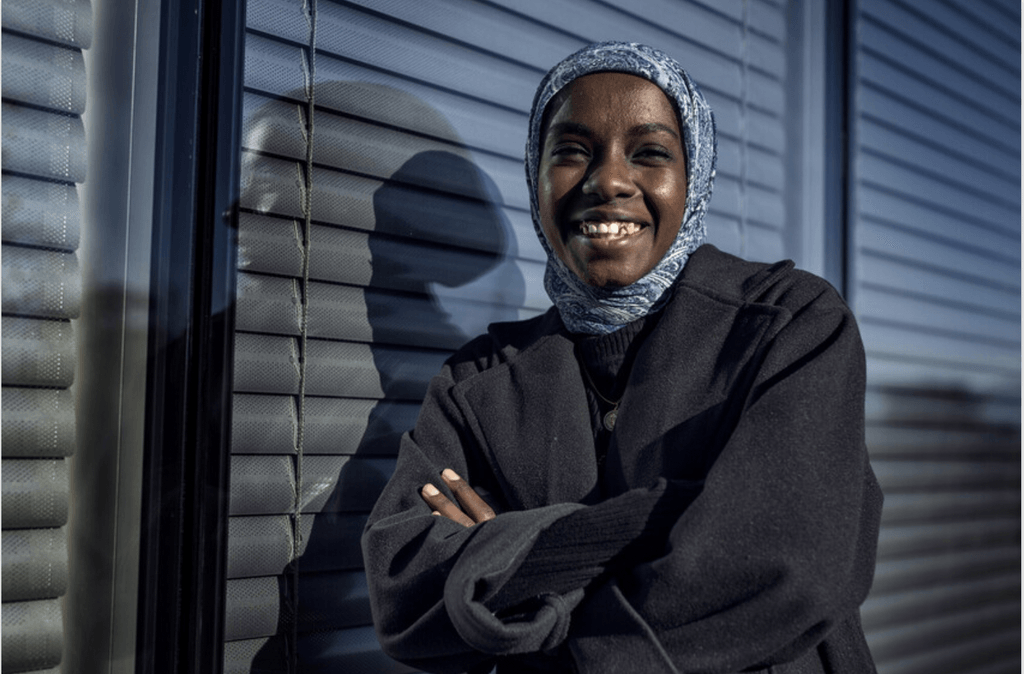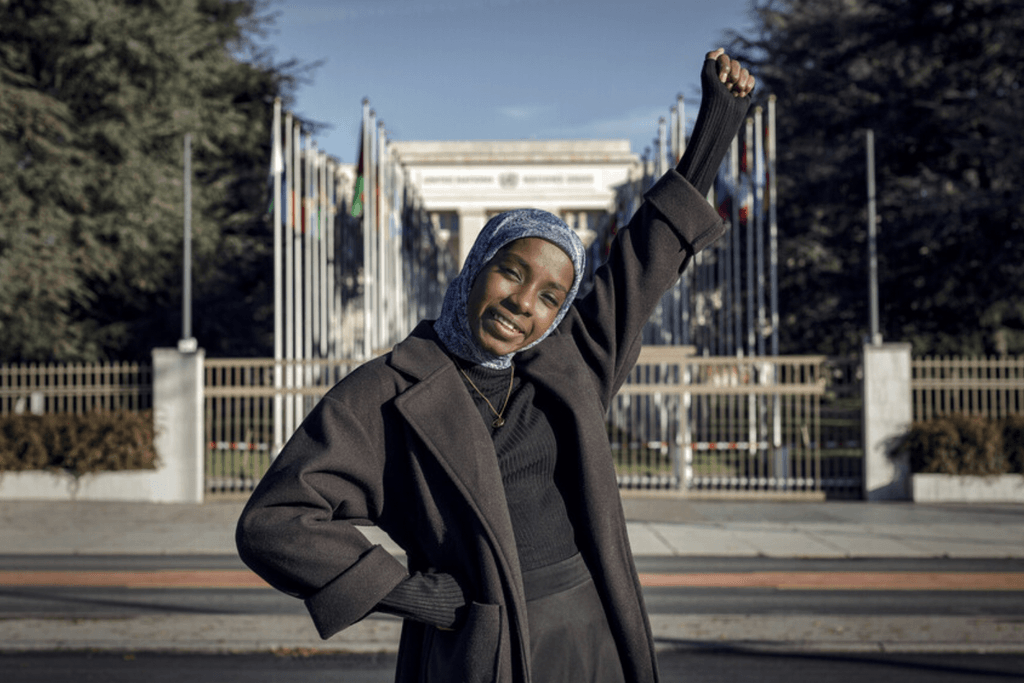Razan: using her personal struggles as fuel to advocate for change
As a refugee, Razan has grown up experiencing, first hand, the challenging realities of accessing good quality education, witnessing her friends get married under the age of 18 and entering the work force as children. She now uses these realities to advocate for education reforms in Jordan.

When Razan was asked to take part in the Universal Periodic Review (UPR) survey, an initiative by the United Nations General Assembly to assess global human rights situations, she was elated! For years, she has remained on the frontline challenging the unequal access to education especially for refugees and this was an even greater platform to expand her cause.
“Becoming an educator has forever been my foremost aspiration.” Razan shares, highlighting the depth of her commitment to transforming the educational landscape.
“But I cannot pursue it if majority of the girls do not have access to education and are instead forced into child marriage and labour.”
Preparing for Geneva
Together with 23 other young people, Razan took part in consultations with government and was selected as a representative of Jordanian children and youth to bring the issues presented to the United Nations in Geneva.
They consequently submitted a youth-led report addressing child marriage, child labor and unequal access to education and embarked on a week-long journey to Geneva, to advocate for educational reform.
“Becoming an educator has forever been my foremost aspiration. But I cannot pursue it if majority of the girls do not have access to education and are instead forced into child marriage and labour.”
Razan
In Geneva, Razan also met with, among others, 7 member states delegations and the EU delegation to the UN, the UN working group on discrimination against women and girls, and the Special Rapporteur on cultural rights in preparation of their country-visit to Jordan.
The advocacy briefs prepared by Razan and her fellow youth advocates were also shared to several embassies on the national level, further extending their reach and impact. Meetings with embassies ensued, broadening the scope of their advocacy and ensuring that the message of educational reform was heard by influential stakeholders across the globe.
Celebrating campaign success
As a result of their advocacy efforts, 35 countries have endorsed their recommendations, which focus on critical issues such as child marriage, child labor, and unequal access to education.
The Government of Jordan has since adopted 25 of these recommendations, marking a historic step forward in addressing key societal challenges and improving the lives of girls and young women in Jordan.
This success not only highlights the effectiveness of youth-led advocacy but also sets a precedent for girls and young women to influence national and international policy agendas.

Amplifying youth voices in decision making
This successful advocacy is one of the many activities being run under Plan International’s She Leads programme in Jordan that seeks to challenge and shift harmful social norms, attitudes, and behaviours that restrict the participation of girls and young women in decision-making.
The programme addresses gendered barriers, such as societal beliefs that confine women to domestic roles, which often lead to discrimination, child marriage, and gender-based violence.
She Leads also seeks to strengthen the agency of girls and young women by creating safe spaces where they can voice their concerns, engage in activism, and influence policies.
“This programme has empowered me to take on leadership roles, use my voice, and stand up for what I believe in.” says Razan.
“Through my experience, I’ve gained the confidence to lead workshops, engage in field work, and support initiatives that challenge gender norms. She Leads has transformed how I see myself; not as a follower, but as a leader capable of creating real change.”
Over and above the success of the UPR Advocacy, She Leads has also engaged 1,692 individuals through capacity building and advocacy training, improving their attitudes and practices towards recognising girls and young women’s voice, agency, leadership, and participation in decision-making processes.
“This programme has empowered me to take on leadership roles, use my voice, and stand up for what I believe in.”
Razan.
The programme has also strengthened the capacity of 226 Civil Society Organization partners, including women-led, girl and women-led, and feminist organisations, enabling them to support girls and young women participation in advocacy and activism and engaged 130 local, district, and national government officials to raise awareness on the importance of girls and young women participation in political institutions, advocating for their inclusion in decision-making processes.
This as well as media and social media advocacy campaigns have ensured girls and young women have forums to raise public awareness and advocate for policy changes that support the rights of girls and young women.

